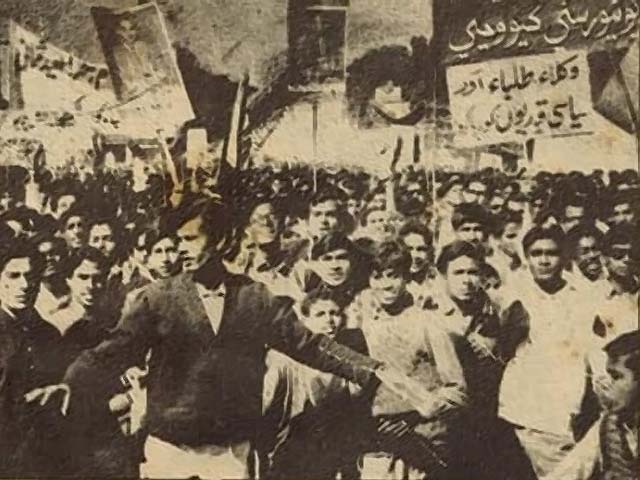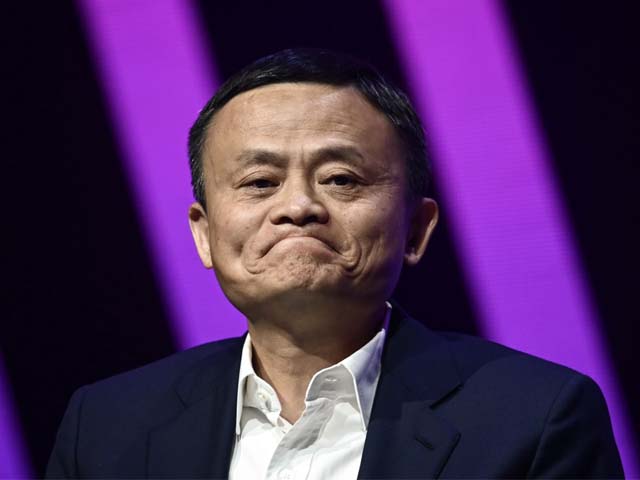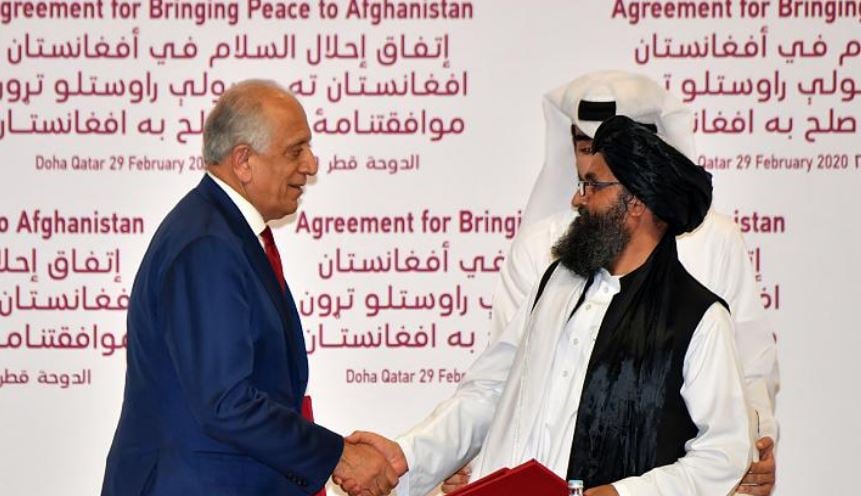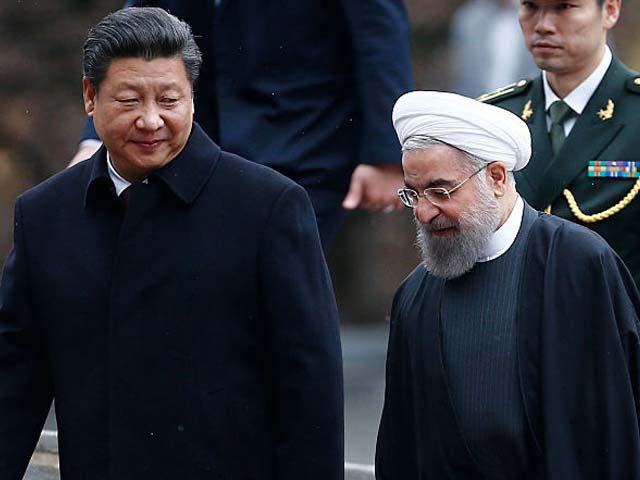
Pakistan’s student unions dilemma
Plato once said that, “Those who refuse to take part in politics are destined to be ruled by inferiors”. This perfectly sums up the student union conundrum faced by Pakistan today. On the one hand, those in power have voiced open support for the revival of student unions, making references to the essential role they play in the political and communal nurturing of a society. Yet, on the other hand, politicians refuse to bring about any tangible change in this regard. Perhaps, the notion of political nurseries producing a merit based future leadership threatens the fragile sense of self of those who wish to promote the status quo.
Student unions and democracy go hand in hand. Throughout the first few decades of Pakistan’s existence, students have actively participated in politics and looked after the interests of the wider civil body. The 1968 mass movement which later toppled the throne of Ayub Khan’s regime was initiated through student protests. Even Ziaul Haq felt threatened by student power, and resorted to banning student unions in 1984 after progressive and anti-dictatorial alliances swept the union polls of 1983. Benazir Bhutto revived student unions in 1989 for a short period of time before they were banned under the pretext of the Supreme Court’s 1993 decision; never to see the light of day again.
Despite such a turbulent history, and notwithstanding the hollowed promises from the corridors of power, students have managed to make inroads into politics. The recent wave of emerging student politics in the form of ‘Student Solidarity March’ is a manifestation of this reality. The march was organised in 50 cities across Pakistan during 2019 as opposed to the nine cities it managed during 2018. Students rallied in numbers to demand the revival of student unions and grievance redressals. Issues of importance for students and educational institutions were voiced. These included (but were not limited to) sexual harassment on campuses, the oppressive nature of the administration, low budget allocation to education and Higher Education Commission (HEC), and the policing of campuses by law enforcement agencies.
Had students access to proper forums such as student unions, they would not be protesting on the streets. It is time that we pay heed to what they have to say. After all, the youth comprises 64% of Pakistan’s population. It is pertinent that there is a revival of student unions and student politics in Pakistan. Any action should, however, address the legitimate concerns and criticism about the role of student unions in the society and politics of Pakistan.
Student unions are the avenues where Pakistani students can learn the art of politics and diplomacy, and evolve political thought. This way, merit based capable leaders can come to prominence. This is the need of the hour in Pakistan; a shift from feudal and dynastic politics towards merit based politics. Leaders still in touch with the masses can promote public confidence in parliamentary democracy. Student unions have much to contribute to the promotion of democratic processes, norms, and values in Pakistan. They can serve as the grounds to truly understand that democracy is “government of the people, by the people, for the people”.
Being a keystone of democracies across the globe, student unions elect their leaders through free and fair elections. This is the very essence of democracy, and can help spread its roots in educational institutions of Pakistan. When there are student unions, even the strongest of powers succumb to their legitimate demands. For instance, French President Charles de Gaulle had to call for new elections amid student protests. Such protests also helped in swaying public opinion against the Vietnam war waged by the USA in 1955. Within South Asia, the president of Jawaharlal Nehru University’s (JNU) student union, Kanhaiya Kumar, became the face of student resistance against the authoritarian and fascist decisions of the Narendra Modi government.
From a broader perspective, student unions can help spread a softer image of Pakistan in the international community. By serving as avenues of education and entertainment; holding debates and discussions; and organising socio-cultural events, they can contribute towards curbing intolerance and extremism in our society. Ultimately, unions are meant to be the backbone of any civil society. Over the years, Pakistan has faced a surge in extremism owing to its decades long association with the war on terror as well as its decision to nourish mujahideens in the Afghan war waged against the USSR. For this reason, it is all the more important to revive student unions to counter intolerance and extremism in our society. Senator Mir Hasil Bizenjo has rightly said that, “they banned student unions on the pretext of violence but violence took birth and permeated after banning of the unions.” Student unions can help prevent events such as the Mishal Khan lynching case of 2017, and the rape and murder of a medical student, Nimrita Kumari, in 2019.
These student unions are pivotal to countering the grip of certain violent student organisations over educational institutes. Educational campuses such as Punjab University are under their grip and this has led to violent incidents over the years; the most recent incident being the thrashing of Baloch students inside the university campus in September of 2019. Student unions, which enjoy the support and confidence of the student body as mandated to them by elections, can effectively help put an end to this reign of terror.
A significant chunk of Pakistan’s population is not aware of their rights under Article 17 of the 1973 constitution, which guarantees every citizen the right to form associations or unions, as long as they are not against the sovereignty, integrity, morality or public order of Pakistan. They are also not aware of their rights to form associations under article 20 of the “Universal Declaration of Human Rights, 1948.” Grassroots politics can change this dismal position of awareness in the society. For once, Pakistan can have an avenue for healthy discussions on politics, philosophy, mysticism and a range of socio-economic issues.
Student unions act as proper forums to voice and address the multifaceted issues of students. They are the appropriate forums to apprise the administration of problems such as fee hikes, an authoritarian administration, and sexual harassment perpetuated within campuses. This can help prevent cases such as the Balochistan University video scandal that emerged last year. In order to make educational campuses more inclusive and safe for our youth, the unions need to revived.
What needs to be highlighted is that student unions have a broad range of benefits. In events of natural disasters, student unions mobilise the youth to help the administration in relief efforts. Worldwide, universities maintain social works departments under the student unions to enable students in playing a positive role for their society. This is achieved by means of social welfare programmes and contributions in disaster management cells. For instance, the University of Michigan maintains a School of Social Work Student Union, whereas the Delhi University has a department of social work student union. Pakistan needs the same for its students.
Now, more than ever, the question of effective revival of student unions needs to addressed. Let us not forget the plight of a significant proportion of students who have been left out of the online education process merely because they do not have access to internet facilities. If anything, this Covid-19 crisis is an opportunity to revamp our education system as well as its underpinning infrastructure to make it more inclusive and equitable. For starters, student unions should be allowed to operate under a new set of regulations devised in consultation with all stakeholders, much like the charter of democracy. Within this broader charter, a mechanism for monitoring and evaluation of student unions needs to be enacted. To ensure that student unions contribute towards the strengthening of democracy, free and fair elections for its posts should be held on a recurring basis under the wider set of rules enacted by the Parliament. In all of this, gender parity should be ensured. The purpose of legislations should be to ensure that democratic processes are being followed within the student unions, rather than policing and interference in their affairs. It is up to the leaders who claim to be the emblems of democracy in Pakistan to ensure an effective revival of student unions.




COMMENTS (5)
indeed it is a great article.
Great Article!!! but to keep things in proper perspective we don't need to single out any student body which itself as a principle believe in student union and discourse and calls out for Student Union restoration. Listing Punjab University incident as "Reign of Terror" and ignoring IIUI incident in which one "purported terrorist" was killed by "National pluralist" does not serve any good.
Who will control these unions from become a monster in their own way? Who will ensure that that they don't beat the students who defy their call for strikes, because they go to the university to learn and not waste time in strikes?
Who will control these unions from become a monster in their own way? Who will ensure that that they don't beat the students who defy their call for strikes, because they go to the university to learn and not waste time in strikes?
Comments are moderated and generally will be posted if they are on-topic and not abusive.
For more information, please see our Comments FAQ